On the afternoon of July 10, 2023, the unveiling ceremony of the academic Workstation of immune cell signal transduction was held at Yuanjiagang campus of Chongqing Medical University (CQMU). The ceremony was presided over by TIAN Jie, member of the Standing Committee of the Party and Vice President of CQMU, and HAN Jiahuai, academic from the Chinese Academy of Sciences, Director of Faculty of Medicine and Life Sciences of Xiamen University, LI Leiting, Party Secretary and Vice president of Chongqing Association of Science and Technology, QIAO Jian, Inspector of Chongqing Education Commission, CHEN Yong, Director of Talent Department of Chongqing Municipal Committee, YI Jun, Director of Professional and Technical Personnel Management Department of Chongqing Human Resources and Social Security Bureau, HUANG Di, Director of Chongqing Academician Work Service Center, HUANG Ailong, president of CQMU, and YUAN Jun, Standing Committee Member and Vice President of Chongqing Medical University attended.

President HUANG Ailong expressed his respect and sincere thanks on behalf of the school to Academician HAN Jiahuai for settling his workstation at CQMU, and to the dilgence of the various staff members that have cared for and supported the construction of high-level talents in the school for so many years and actively promoted the establishment of academician workstation.
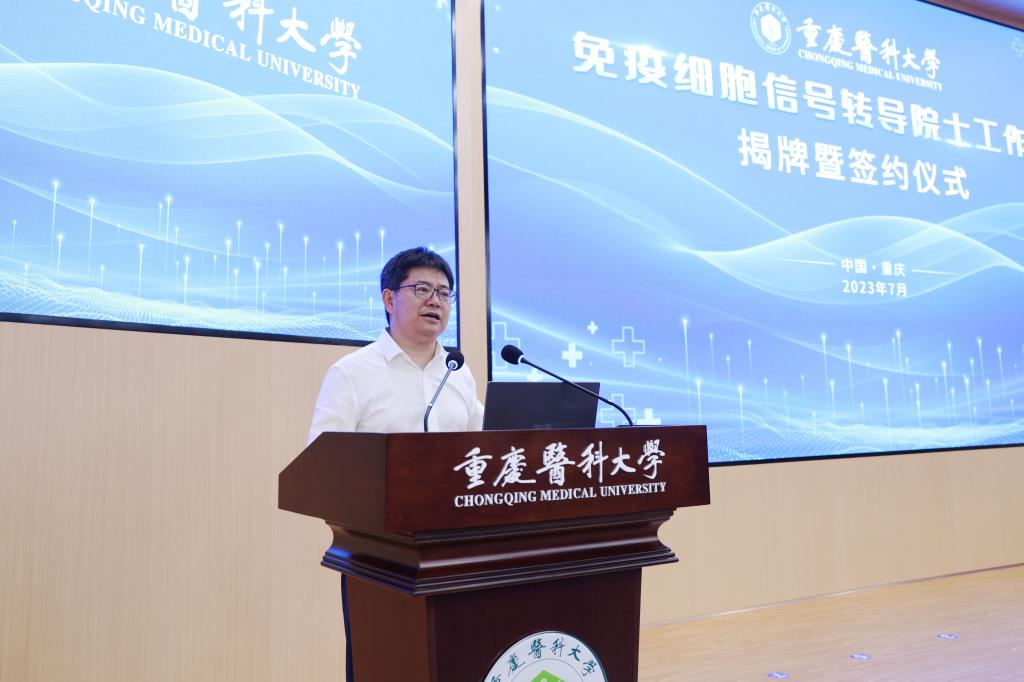
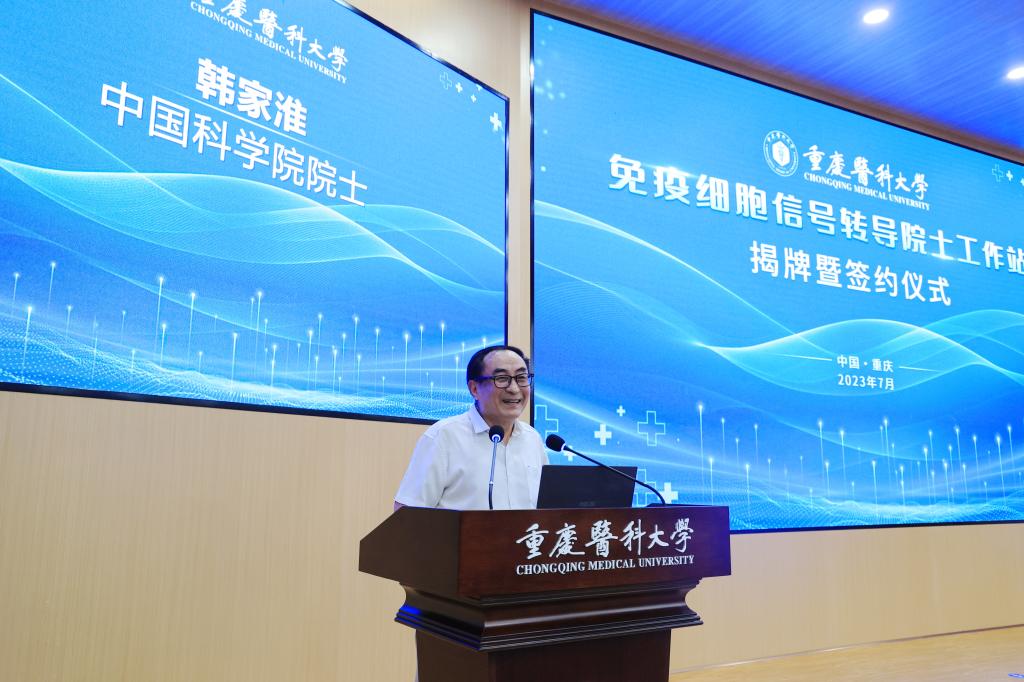
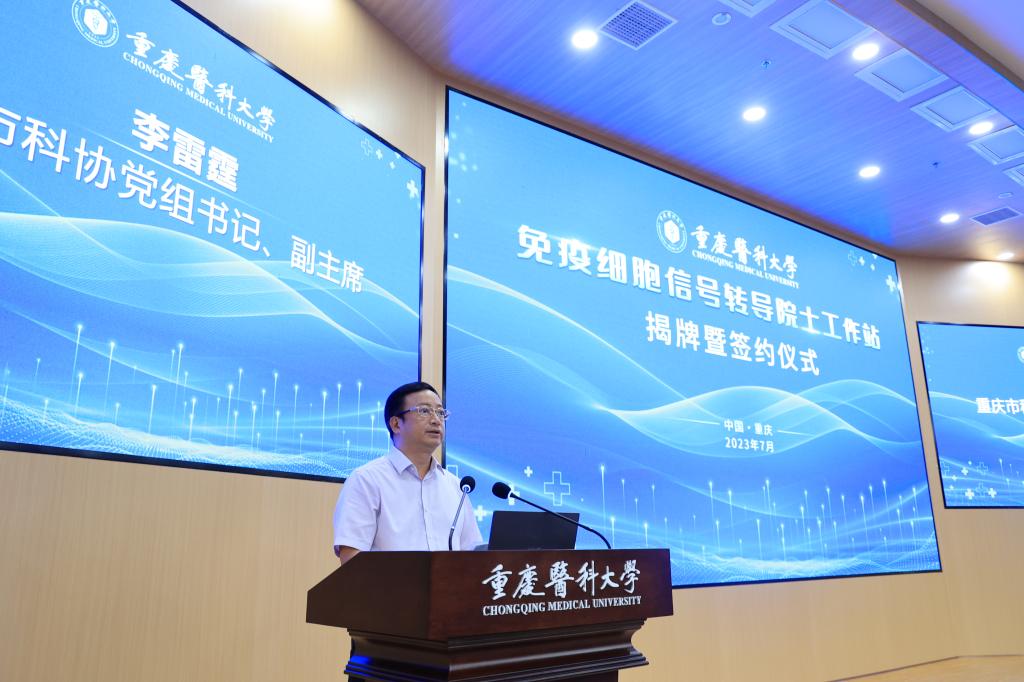
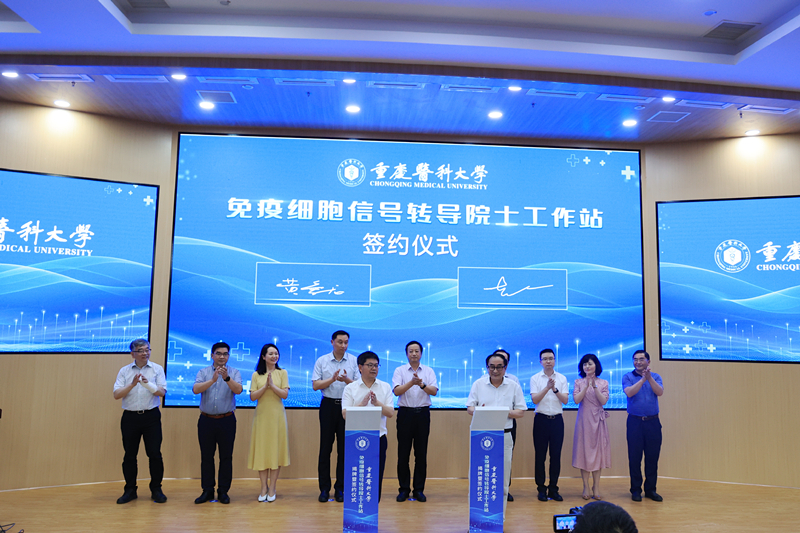
On behalf of the school, Prof. HUANG Ailong executed a contract with Academician HAN Jiahuai and issued a letter of appointment. Academician HAN and Secretary LI Leiting jointly unveiled the Workstation of Immune Cell Signal Transduction.
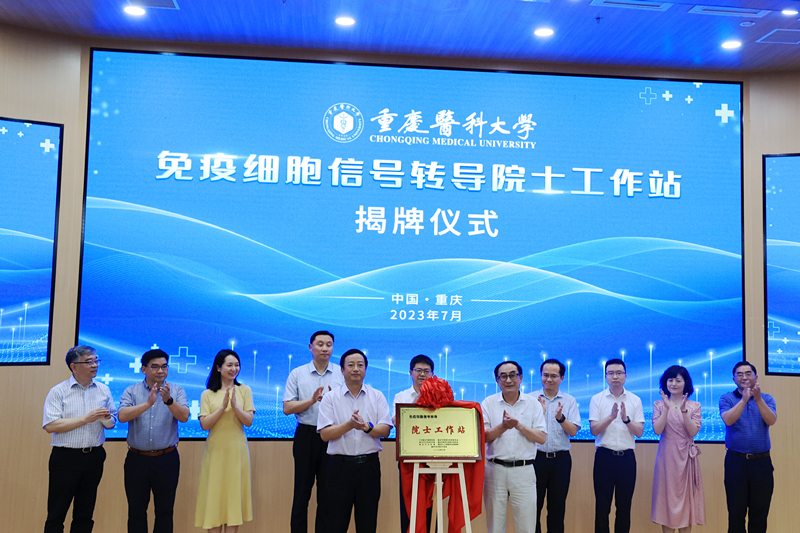
After the unveiling ceremony, Academician HAN made an academic report entitled ‘Activation of STAND ATPase, a checkpoint for inflammasome signaling’.
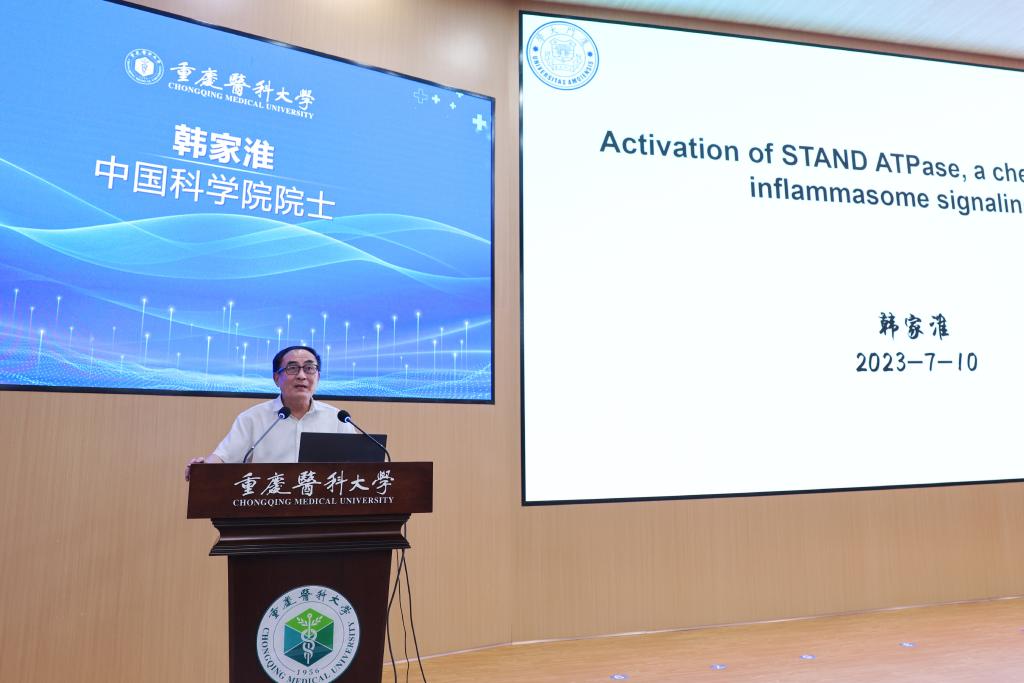
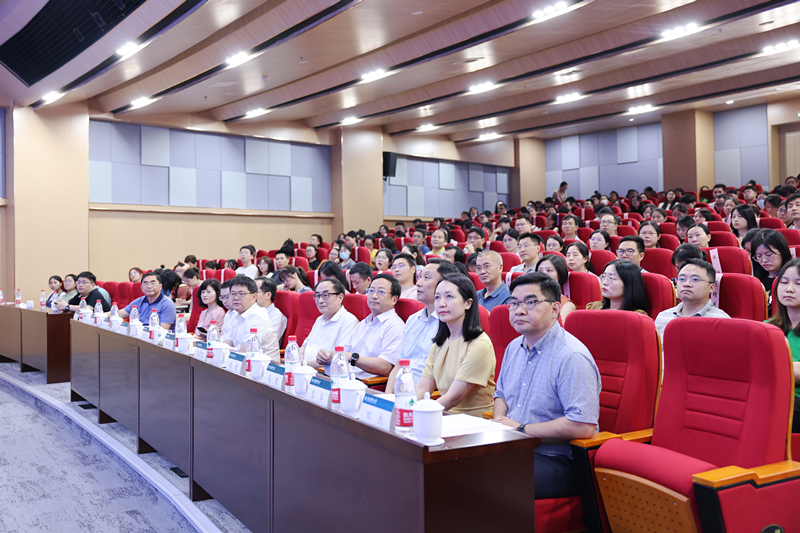

HAN Jiahuai, a member of the Chinese Academy of Sciences since 2013 and director of the Department of Medicine and Life Sciences at Xiamen University, is actively involved in researching innate immune cell signal transduction. His research focuses on studying the molecular, cellular, and animal levels of stress inflammatory response signal pathways and their role in inflammation-related lesions. He is widely recognized as an authority on p38, an evolutionarily conserved stress signaling pathway, and has made significant contributions to the study of cell necrosis. To date, he has published over 340 papers in prestigious international academic journals, including more than 50 articles in CNS and its sub-journals. Additionally, he holds numerous patents in China and the United States. His work has been cited over 64,000 times with one paper having a citation rate exceeding 3500 times.